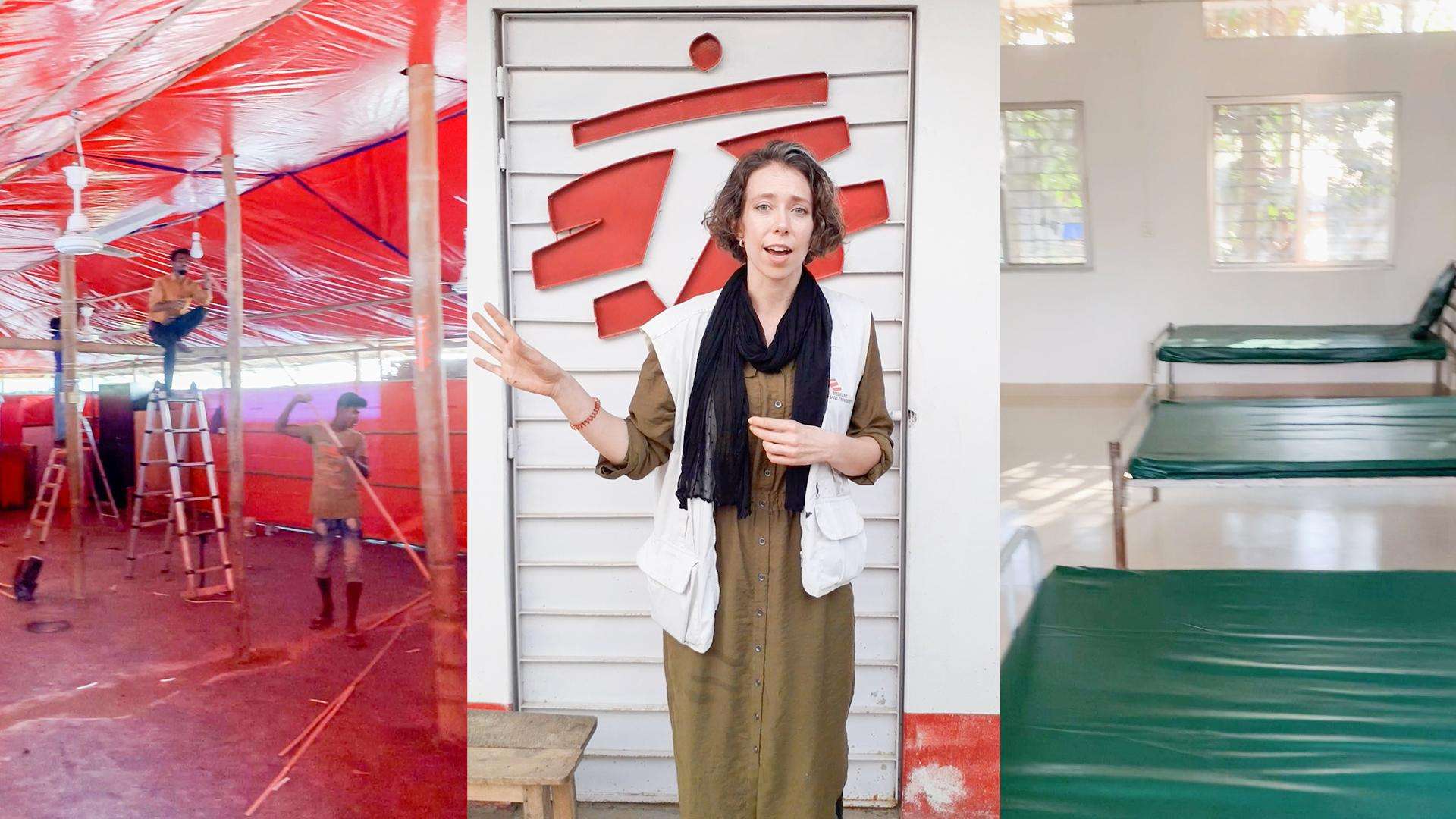Bangladesh is home to the world’s largest refugee settlement, with nearly one million Rohingya people living in crowded conditions with little protection from heavy storms and waves of infectious disease. They are now facing new threats from the coronavirus pandemic. Doctors Without Borders/Médecins Sans Frontières (MSF) teams at Kutupalong hospital, in Cox’s Bazar, are adapting to meet the challenges. In this video, head nurse Liyana Winchell walks us through the hospital and describes some of the quick and creative preparations for COVID-19, the disease caused by the novel coronavirus. MSF teams are training staff on how to use personal protective equipment, adding hand washing points, and building an isolation ward, among other urgent activities. We’re also trying to maintain existing medical programs for Rohingya refugees and local communities, an enormous challenge amid a global public health crisis.
Hi everyone, I’m Liyana. I am a nurse from the US and I’m here working as a nurse at Kutupalong Hospital in Cox’s Bazar Bangladesh
Cox’s Bazar
Kutupalong hospital services over 600,000 Rohingya refugees, as well as local Bangladeshi communities in the area
So here at the hospital, it’s once again turning into an emergency project as we make an extension of the hospital as a dedicated isolation zone. So we’ve been reorganizing a lot of the wards, a lot of the services, deprioritize some of the services, in order to allocate all of our resources and our staffing to the isolation area. (00:44)
Bithy, infection prevention & control (IPC) supervisor, trained the hygienists on how to properly use protective gear
While Rakib, ER nurse supervisor, trained nurses working in the new isolation ward
Every person who comes to the hospital is first screened for fever and respiratory symptoms
Patients with no COVID-19 symptoms go to the main triage area
While patients with possible COVID-19 symptoms go to a separate triage area in the new severe acute respiratory isolation ward
A very important part of the preparations...handwashing points!
Handwashing points have been placed all over the hospital compound
Everyone who enters the isolation area must first wash their hands
This photo was taken just 2 weeks before the isolation ward opened!
This has been a coordinated effort with all of our teams working together to make this possible. It’s much more difficult these days due to the lockdown. So it has been extremely difficult and extremely challenging to get supplies from the outside because everything is basically shut down.
So we’re trying to be creative with the resources that we have, and supplies we have, in order to make this isolation zone possible.
Bashar, Mohammed
And their team of logisticians worked around the clock to build the new ward
They found creative ways to repurpose materials
The logistics team renovated this space, repurposing 2 bamboo pavilions to create a 30-bed isolation area in just 10 days
There are 6 beds in single rooms
And 14 beds in cohort rooms
And this is a 10-bed overflow ward, outfitted with electricity.
I know this is a really difficult time for everyone right now in the world. But we thank you so much, to everyone who has been willing to donate and to help us out as we care for some of the most vulnerable populations in the world. It means so much and it makes a huge, huge difference. Thank you so much, everyone.




